Jonathan Chou, MD, PhD

Nearly all of the FDA-approved therapies in the last decade for bladder cancer target cell surface proteins. Despite enormous progress in targeted therapy development, however, only five unique targets (out of thousands) have been explored. In addition, because current tumor targets are often also expressed on normal tissues, toxic side effects are common and can even be life-threatening. Therefore, identifying cancer-specific, targetable proteins is critical to enhancing efficacy and safety of bladder cancer drugs. In this project, Dr. Chou will utilize a new technique to identify novel drug targets from patient tumor samples, develop molecules that bind them, and engineer these molecules into cellular therapies. He will also evaluate a strategy to target a surface protein called CDCP1 and explore the role of several proteases (enzymes that break down proteins) in therapy resistance. Dr. Chou hopes that his work will reveal a new class of targetable surface proteins for bladder cancer and pave the way for future clinical trials.
Bridget P. Keenan, MD, PhD
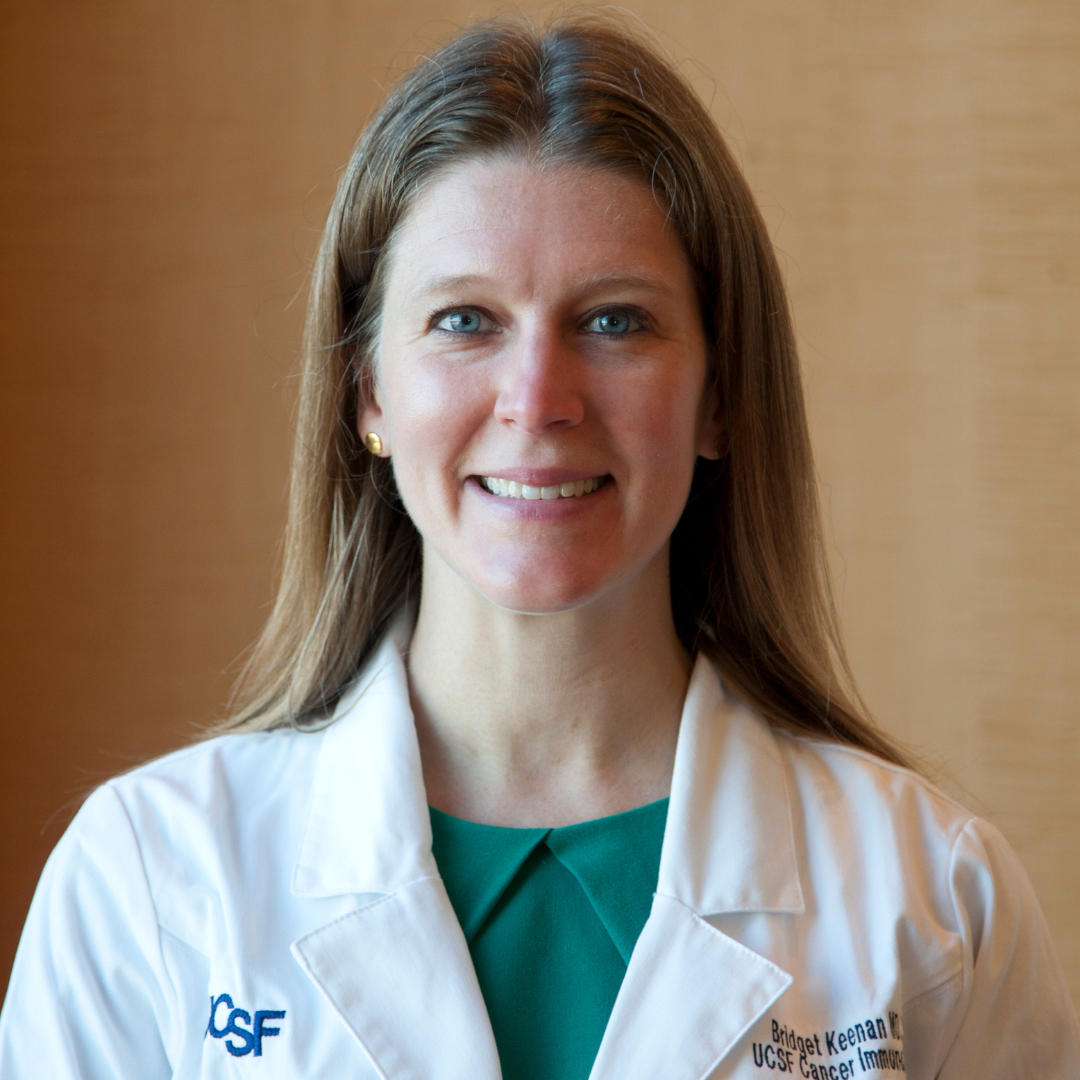
Hepatocellular carcinoma (HCC), a type of liver cancer often caused by liver disease related to viral infections or metabolic disease, is a leading cause of cancer deaths globally. Treating HCC with immunotherapy and targeted therapies shows promise, but liver damage can make these treatments challenging to administer and less effective. Dr. Keenan’s preliminary data suggest that certain immune cells, known as myeloid cells, become suppressive in patients with HCC and worsen liver function. However, it is possible that the correct combinations of immunotherapy treatments could partially reverse this myeloid cell suppression and result in better outcomes for patients with HCC. Dr. Keenan will focus on understanding exactly how liver disease affects the immune system and finding ways to counteract the suppressive effects of myeloid cells. By studying blood samples and liver tissues from patients with HCC undergoing immunotherapy treatment, she aims to identify the best combinations to enhance the immune system’s ability to fight liver cancer. This research could lead to new, more effective treatments for patients with liver cancer, potentially improving survival rates and quality of life.
Srivatsan Raghavan, MD, PhD
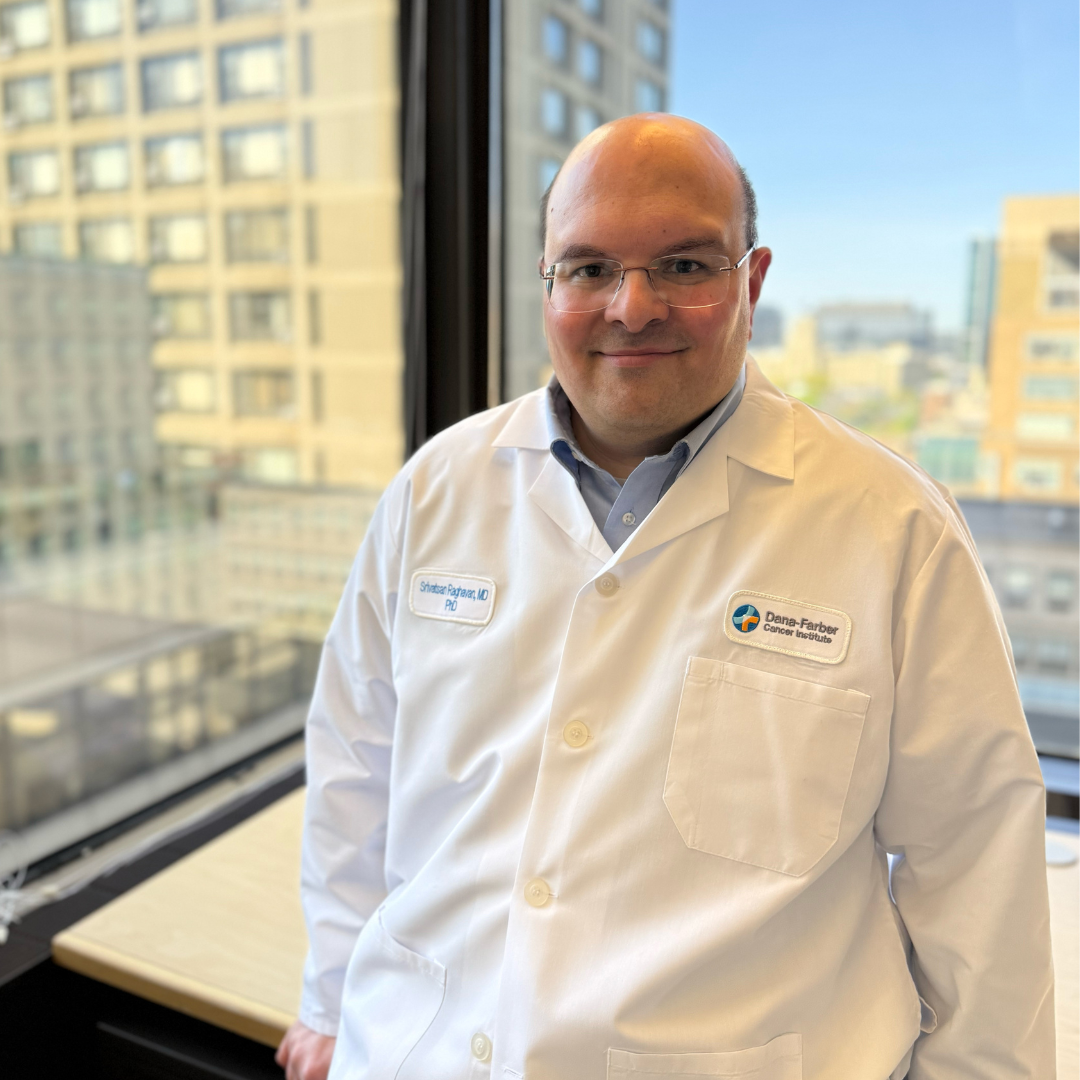
Pancreatic cancer is a highly lethal disease with relatively few treatment options. A new class of inhibitors that target the KRAS gene, which is altered in approximately 90% of pancreatic cancer patients, are showing great promise in the clinical setting as a new therapeutic option for these patients. However, nearly all patients develop resistance and experience tumor regrowth after a relatively short period of treatment with these drugs. Dr. Raghavan aims to investigate how cancer cells adapt and become resistant to these KRAS inhibitors and develop combination therapies to overcome this resistance. He anticipates that these studies will uncover fundamental mechanistic insights into cancer drug resistance and identify novel therapeutic strategies that will improve outcomes for patients with pancreatic cancer.
Tanaya Shree, MD, PhD

T-cell engaging bispecific antibodies, which bring T cells close to tumor cells and induce them to kill the tumor cell, are a new class of immunotherapy that have demonstrated efficacy in lymphoma and myeloma and are now in development for many other cancers. In diffuse large B cell lymphoma, bispecific antibodies have proven very effective, but approximately 60% of patients derive no long-term benefit. Dr. Shree is working to understand the requirements for generating an effective bispecific antibody response in patients. This knowledge could result in novel improved treatment approaches for patients with lymphoma and inform the design of bispecific T cell-engaging strategies for other types of tumors.
Peter G. Miller, MD, PhD

The goal of Dr. Miller’s research is to determine how mutations in blood cells give rise to pre-malignant blood conditions such as clonal hematopoiesis (CH), which drive the development of blood cancers. To this end, Dr. Miller will study patients with rare inherited diseases and use experimental models in the laboratory. He ultimately seeks to use the data generated through this research to develop new strategies to predict, prevent, and treat highly lethal blood cancers.
Mary M. Mullen, MD

Only up to 20% of patients with advanced ovarian cancer will survive five years after diagnosis. This is largely due to the cancer’s resistance to traditional chemotherapy and the current lack of targeted therapies that work with chemotherapy to improve response. Dr. Mullen’s lab has identified a new target, COP9 Signalosome Subunit 5 (COPS5), to treat ovarian cancer. Her team has found that inhibiting COPS5 with a drug called CSN5i-3 drastically improves ovarian cancer response to chemotherapy. She now aims to test the effectiveness of CSN5i-3 and chemotherapy against patient-derived, therapy-resistant ovarian cancer tumors. She will also investigate the mechanism of COPS5, believed to be involved in the repair of DNA damage caused by chemotherapy. Dr. Mullen hopes this innovative target will transform the care of patients with ovarian cancer.
Lachelle D. Weeks, MD, PhD

Dr. Weeks [Damon Runyon-Timmerman Traverse Clinical Investigator] plans to develop computerized models that can review images of blood cells and predict a patient’s risk of developing acute myeloid leukemia. Because computers can capture small changes in images better than humans looking at cells under a microscope, such a model could connect data about the shapes and appearance of blood cells to the presence of pre-leukemia genetic changes known as clonal hematopoiesis. This work will inform the extent to which blood cell appearance is associated with the underlying biology of leukemia and Pre-leukemia. Ultimately, Dr. Weeks aims to refine existing models of leukemia risk prediction and pave the way for screening programs that can identify individuals with clonal hematopoiesis who are at the highest risk for progressing to cancer.
Megan L. Insco, MD, PhD

Erin M. Parry, MD, PhD

John R. Prensner, MD, PhD
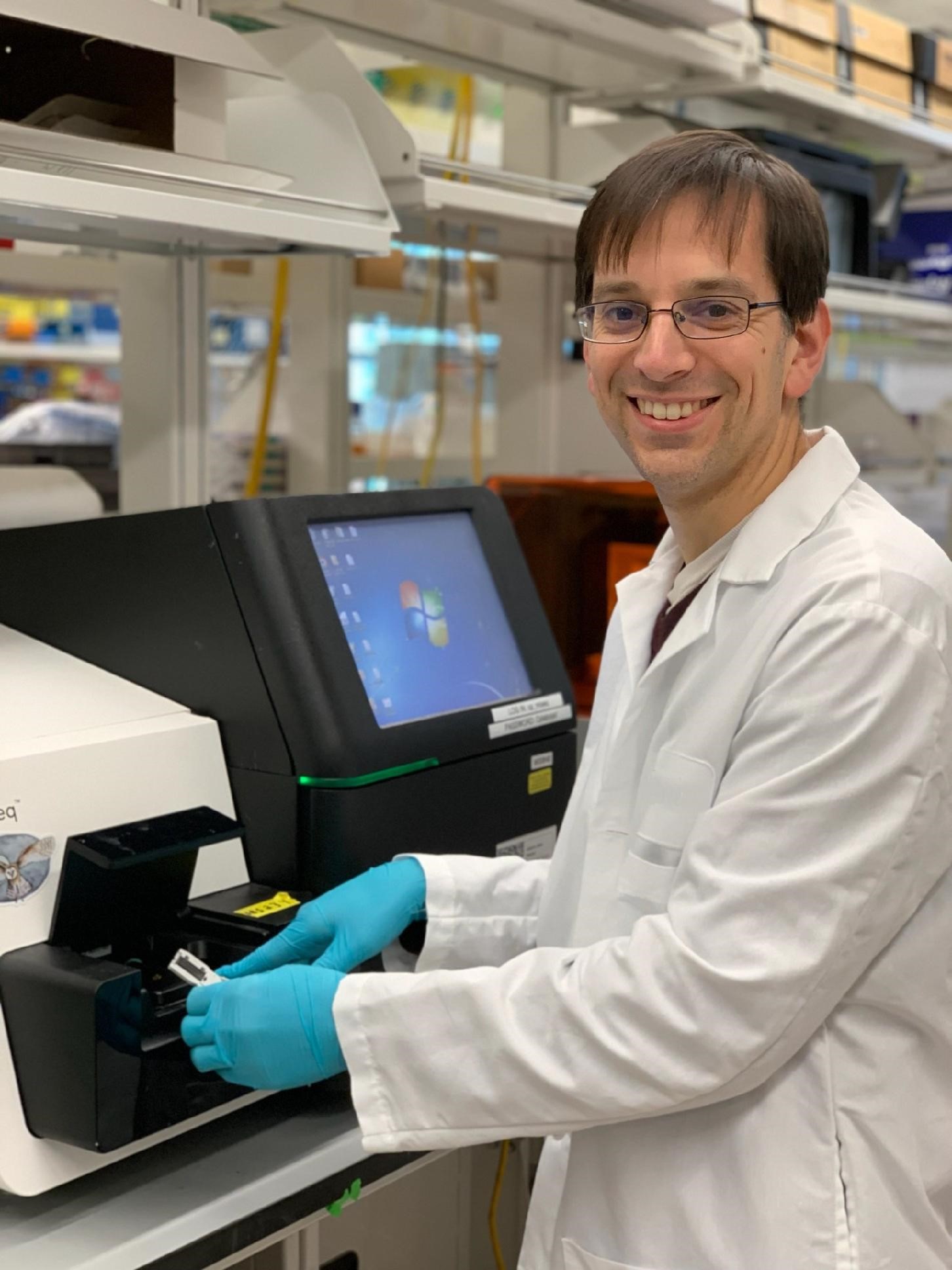
New therapeutic approaches are urgently needed for children suffering from high-risk medulloblastoma, a form of pediatric brain cancer, where half of children will experience disease relapse leading to death. Dr. Prensner’s [Ben and Catherine Ivy Foundation Clinical Investigator] work is focused on understanding the biological underpinnings of high-risk medulloblastoma and developing new treatment options. His team recently found that high-risk medulloblastoma may exploit an imbalance in the production of proteins from the tumor cell genetic material (RNA, DNA). Dr. Prensner aims to define the cancer biology that causes an imbalance in the protein-RNA ratio in medulloblastoma, and investigate specific therapeutic options that may target this biology. His hope is that this work leads to new options for clinical trials for children with high-risk medulloblastoma.
Steven M. Corsello, MD
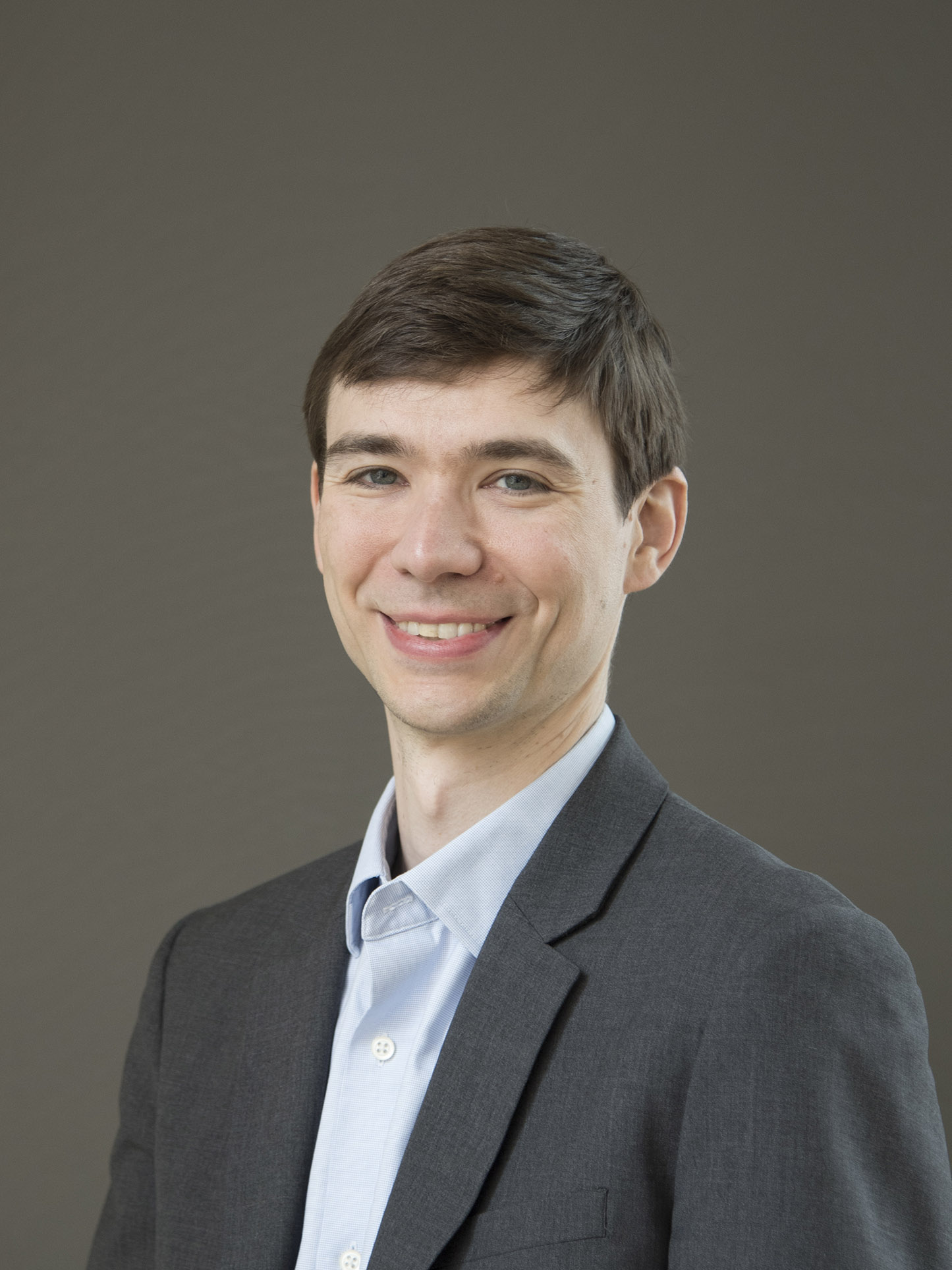
Pancreatic cancer is a devastating disease with limited treatment options. New strategies are urgently needed, but few actionable therapeutic targets are known. By systematically testing diverse molecules against pancreatic cancer cells combined with gene knockout studies, Dr. Corsello [Leslie Cohen Seidman Clinical Investigator] has identified a starting point to simultaneously activate inflammatory signaling and cell death pathways. He will determine the efficacy and underlying molecular mechanism of this approach, and potential immunotherapy combinations, using patient-derived tumor models. His goal is to accelerate the development of more effective and less toxic therapies for pancreatic cancer.
Santosha A. Vardhana, MD, PhD
Dr. Vardhana [Gordon Family Clinical Investigator] is exploring the hypothesis that gastric cancers create an inhospitable environment for immune T-cells by limiting the availability of essential nutrients needed by T-cells to produce the cytotoxic proteins that, when released, kill cancer cells. There is evidence that T-cells lose the ability to produce cytotoxic proteins within gastric tumors, while gastric tumors take up and sequester amino acids—the building blocks of all proteins, including cytotoxic proteins—such that they cannot be accessed by T-cells within tumors. Understanding and reversing this metabolic sequestration within gastric tumors may be a novel strategy to enhance T-cell immunity within gastric tumors.
Fyza Y. Shaikh, MD, PhD

Immunotherapy has significantly changed how lung cancer and melanoma are treated. Unfortunately, only a small percentage of patients experience long-lasting responses. Gut bacteria have emerged as a potential predictor of how patients will respond to immunotherapy and may even be adjusted to enhance the effect of immunotherapy. Dr. Shaikh aims to identify features of the gut microbiome that correlate with immunotherapy responses. She will focus on both individual bacteria as they change over the course of treatment and the metabolites made by the entire bacterial community in the colon. The goal of this project, since gut bacteria can be modified, is to develop microbiome-based treatments to be used in combination with immunotherapy to improve response rates or overcome immunotherapy resistance for patients.
Benjamin A. Nacev, MD, PhD
Sarcomas are a family of tumors for which there are few targeted treatments and outcomes are poor once the cancer has metastasized. Many sarcomas harbor recurrent mutations in proteins, known as epigenetic regulators, that control which genes are expressed and when. Among the regulators most frequently impacted is ATRX, which condenses regions of DNA into tightly packaged chromatin that cannot be accessed for transcription, effectively “silencing” these genes. The effect of ATRX loss in sarcomas is poorly understood, however, and treatments that leverage ATRX deficiency are lacking. Using patient-derived sarcoma cell lines and tumor samples, Dr. Nacev aims to understand epigenetic dysregulation in ATRX-deficient sarcomas, to determine how this affects antitumor immunity, and to identify new therapeutic vulnerabilities.
Andrew L. Ji, MD
Cutaneous squamous cell carcinoma (cSCC) is the second most common cancer in the U.S. While most cases are caught early and cured with excision, this cancer is more aggressive in the organ transplant recipient (OTR) population, with higher rates of recurrence and metastasis. Treatment options are severely limited in these cases. OTRs require immunosuppression, which is linked to cSCC aggression, but the underlying molecular and cellular mechanisms are poorly understood. Dr. Ji has discovered an invasive cSCC subpopulation that communicates with non-malignant cell types in the tumor’s environment. By profiling OTR tumors using cutting-edge single-cell and spatial technologies, he aims to better understand how this harmful subpopulation emerges in the immunosuppressed setting, aided by crosstalk with these neighboring cells. His goal is to develop strategies for disabling invasion and improving treatment of cSCC in both OTRs and advanced cases in the general population.
Pavan Bachireddy, MD

A major cause of relapse after therapy is the persistence of measurable residual disease (MRD) cells—cancer cells that remain after treatment and eventually spread. Due to technical and logistical challenges in accessing and analyzing MRD cells, the molecular and cellular pathways that enable MRD progression remain poorly understood. Dr. Bachireddy will use innovative molecular tools to analyze tissue samples from blood cancer patients at a single-cell level to unlock insights into MRD progression. Using cutting-edge machine learning approaches, he will identify immunosuppressive mechanisms that may be targeted to halt MRD progression. Beyond these blood cancers, he aims to reveal organizing principles of MRD progression that are relevant across human cancers.
Sylvan C. Baca, MD, PhD

Promising new treatments for cancers of the bladder and kidney have been developed, but, as with many cancer therapies, tumors eventually develop resistance. Research has shown that cancer cells resist treatment in part via epigenetic changes—those that do not affect the DNA sequence itself but turn important genes on or off, allowing cancers to survive under therapeutic stress. Dr. Baca is using novel techniques to study the epigenomes of cancer cells from blood samples. His goal is to understand how changes in the epigenomes of bladder and kidney cancers lead to treatment resistance. This knowledge will enable the design of better treatments and drug combinations that will benefit patients with metastatic bladder or kidney cancers.
Aaron D. Viny, MD

Up to 50% of patients with acute myeloid leukemia (AML) have a genetic alteration called DNA methylation, in which a carbon methyl group is added to the DNA molecule, typically turning the methylated gene "off." A mainstay of therapy is the use of hypomethylating agents, which prevent copying of these modifications during cell division, but this therapy is effective in only 20-30% of patients. Using chemical and genetic manipulation in mouse bone marrow, Dr. Viny [Damon Runyon-Doris Duke Clinical Investigator] aims to determine the effect of DNA methylation on the ability of specific regions of the genome to be accessible to proteins involved with gene expression and other regions to be inaccessible and "silenced." In a prospective phase II clinical trial, he will treat relapsed AML patients with dual hypomethylating agents. By studying these patients' genetic profiles, he aims to determine the genetic features that contribute to therapy response, paving the way for more effective interventions to be developed for patients with acute myeloid leukemia. Dr. Viny was previously a Damon Runyon Fellow.
Nathan Singh, MD

Chimeric antigen receptor T cell (CAR T cell) therapy, in which a patient's own immune cells are engineered to target their cancer, has changed the treatment landscape for many blood cancers. Despite promising early results, however, long-term follow-up has revealed that nearly half of patients treated with CAR T cells eventually experience cancer recurrence. Using a variety of techniques in cell lines and patient samples, Dr. Singh [Bakewell Foundation Clinical Investigator] aims to understand how interactions between engineered T cells and blood cancer cells in some cases lead to long-term remission, and in others to therapeutic failure. The broad goals of his lab are to understand the biological signals that cause these therapies to fail, and to use this knowledge to design next-generation immunotherapies that can cure more patients.
Daniel J. Delitto, MD, PhD
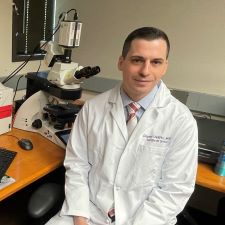
Pancreatic cancer develops in the midst of intense scarring and fibrous connective tissue (fibrosis). The architects of this scarring are cells called fibroblasts, known to fuel cancer growth and promote treatment resistance. Dr. Delitto's research is focused on the interface between cancer-induced fibrosis and the immune system. He has shown that fibroblasts play a significant role in shielding cancer cells from immune cells. By altering how fibroblasts sense tissue damage, Dr. Delitto has uncovered a mechanism that reactivates the immune system to fight the tumor. He aims to further develop these findings into a novel immunotherapy regimen for pancreatic cancer.
Phillip L. Palmbos, MD, PhD
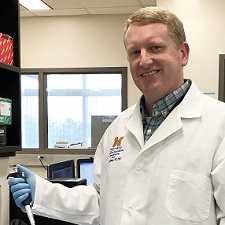
Although immunotherapy results in improved survival for some patients with advanced bladder cancer, most tumors do not respond, and the molecular drivers of this resistance to immunotherapy are poorly understood. Dr. Palmbos' goal is to use advanced bladder cancer models and patient data to identify the molecular drivers of resistance to bladder cancer therapy and to develop therapeutic strategies to reverse therapy resistance. His group has identified a gene, TRIM29, which is expressed in 70% of bladder cancers and is associated with immunotherapy resistance. TRIM29 is a protein that promotes degradation of STING and other innate immune proteins that drive anti-tumor immune response. He is currently investigating the regulation of the TRIM29-STING pathway and developing strategies to sensitize bladder and other cancer types to immunotherapy.
David Y. Oh, MD, PhD
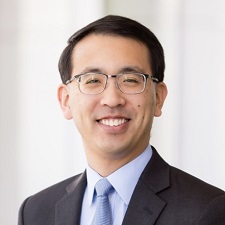
While immunotherapies such as anti-PD-1 therapy have provided an important treatment option for bladder cancer, the majority of patients do not respond to these regimens. This may reflect the distinct activation requirements of other immune T-cells besides CD8+ T-cells. In recent work, Dr. Oh and colleagues have identified cytotoxic (cancer cell-killing) CD4+ T-cells in human bladder cancer that are associated with immunotherapy responses. However, the regulation of cytotoxic CD4+ T-cells and how these mechanisms compare with CD8+ T-cells is not understood. Dr. Oh proposes to identify and validate surface receptors that enhance or inhibit the activity of cytotoxic CD4+ T cells in human bladder cancer, and the tumor antigens that are recognized specifically by these cells. He will also compare which of these regulatory mechanisms are unique to cytotoxic CD4+ T-cells relative to their CD8+ T-cell counterparts from the same patients. This work has the potential to increase both the proportion of bladder cancer patients who respond to immunotherapy as well as the quality of their response.
Alexander C. Huang, MD
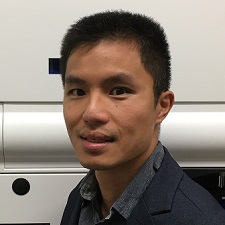
Immune checkpoint inhibitors (ICI), like anti-PD-1 therapy (αPD-1), have transformed clinical oncology by inducing long-term remissions, even in metastatic disease. However, fewer than 40% of cancer patients achieve such long-term remission with αPD-1, and immune-related toxicity limits more aggressive combined approaches, such as anti-PD1 and anti-CTLA-4 therapy. The question remains why a large portion of the immune response generated by combination immunotherapy is directed towards toxicity rather than anti-tumor immunity. A better understanding of the T-cell response to ICI is needed to develop safer and more effective treatment strategies. In humans, CD8+ T-cells are responsible for anti-tumor immunity. Dr. Huang is investigating the immune responses of different types of CD8+ T-cells to αPD-1 and whether they play a role in determining clinical efficacy and immune toxicity.
Kelly L. Bolton, MD, PhD

Myeloid neoplasms (MN), including acute myeloid leukemia and myelodysplastic syndrome, are lethal blood cancers. The genetic mutations in the blood that lead to MN can occur years before diagnosis and maintain almost normal function before transformation. Certain mutations, including those in the gene IDH2, have been identified as high-risk for developing MN. Individuals with a reduction in the number of mature blood cells (cytopenias) who harbor acquired mutations in their blood, yet do not meet criteria for a cancer diagnosis, have a condition called cytopenias of undetermined significance (CCUS). These individuals almost invariably develop MN. Dr. Bolton will conduct a clinical trial to evaluate whether the IDH2 inhibitor enasidenib can be used as a therapy for CCUS. She will assess mechanisms of resistance and determine whether enasidenib can prevent the development of MN. This represents the first use of genetically targeted therapy for cancer prevention.
